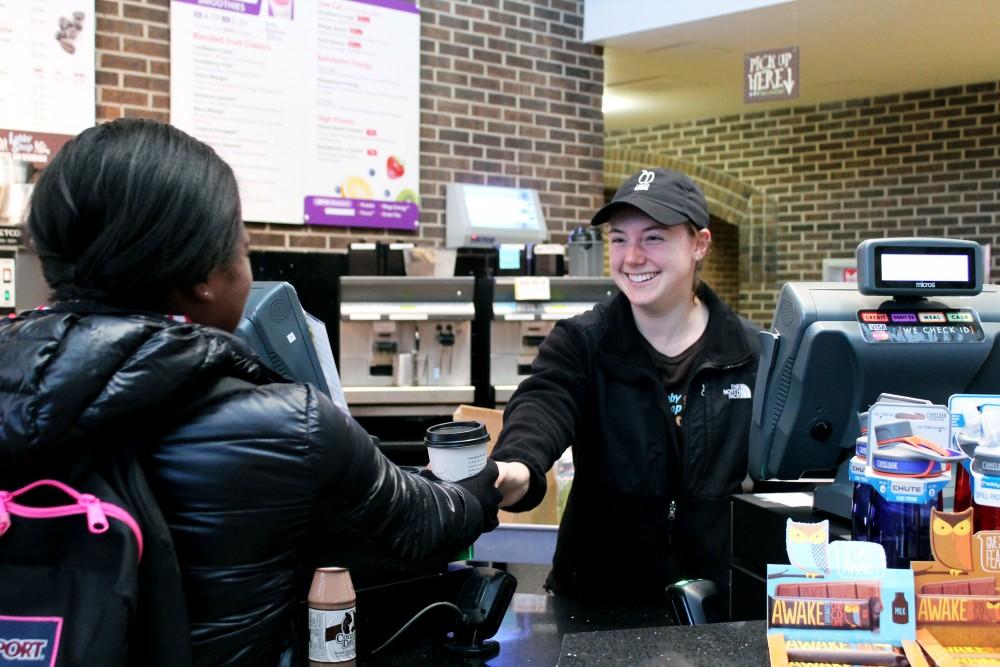Lecture looks at global impact of coffee

GVL / Emily Frye Lobby Shop worker Kayla Guercio serves Taylar Dickson
Nov 3, 2014
Coffee is an everyday necessity for most college students. Despite their dependence on the drink, however, many don’t know where it comes from or how coffee impacts the livelihoods of the farmers and their environments.
On Nov. 5, students at Grand Valley State University will have a chance to learn about the origins of this essential drink. The department of geography and planning is hosting “Connected by Coffee: The Future of Fair Trade” with speaker Chris Treter, the director and co-founder of Higher Grounds Trading, an organic fair trade coffee roasting company in Traverse City. The event will be held at 5:30 p.m. in Lake Michigan Hall Room 176.
“College students drink a lot of coffee, and college students are often concerned about where their products come from so there is a real interest in knowing, or getting a chance to know, where exactly is my coffee from,” said Jim Penn, associate professor of geography and planning. “They want to know, ‘who are these farmers, what are the environmental conditions there and what is my consumption of coffee doing for these farmers?’”
Treter is also one of the founders of On the Ground, a non-profit organization that supports community development in farming regions around the world by helping to develop systems for fresh water, education and health care. During the presentation, he will share a video of his experiences working with women who farm coffee in the Congo and will discuss the needs of farmers and what is being done to help them.
“We often think that our consumption of coffee affects farmers this way or that way, but it’s difficult to really find out, so even if something is labeled fair trade, it’s difficult to learn about how it actually impacts farmers. The good thing is Mr. Treter can give us examples as he’s been there.”
Fair trade goods are produced by farmers and workers who are justly compensated. In developing countries, it helps develop better trading conditions and promotes sustainability. However, not all farmers in developing countries have fair trade contracts, Penn said.
“Students should be aware that just because they’re buying fair trade coffee at Grand Valley that says it’s from Ethiopia, that does not mean that all farmers in Ethiopia benefit from fair trade,” he said. “You may have 200 farmers who have a fair trade contract and then you may have 200,000 of them who don’t.
“Farmers benefit at varying degrees from fair trade.”
At GVSU, much of the coffee sold on campus is fair trade, Penn said. He hopes when students purchase a cup, they will consider what it took to get them that drink.
The event is co-sponsored by the liberal studies department, the Frederik Meijer Honors College and the environmental studies program.
For more information, contact Jim Penn at (616) 331-3065 or [email protected].























